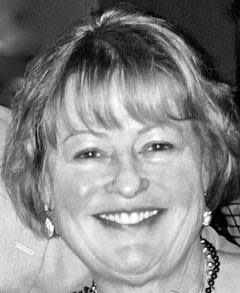Banning books will not censor thoughts and ideas
- Oops!Something went wrong.Please try again later.

“How wonderful it is that nobody need wait a single moment before starting to improve the world.” These are the uplifting words of a young Jewish teenager, Anne Frank, who you might remember from school if you were lucky to be in a school district that did not ban her book.
Her diary was written in the midst of World War II while hiding with friends and family from the Nazis who were exterminating Jews. This book is one of the most banned books over the past 50 years. She used her diary to express thoughts that she wasn’t quite comfortable with — her relationship with her mother as well as the maturing of her body. Anne writes, “Who would ever think that so much went into the soul of a young girl?” A young girl today can truly empathize with those thoughts. Some things even 80 years later resonate to us.
I wonder what she would make of this world we are living in today — racism, xenophobia and discrimination. Would she be surprised that her diary has been banned for not only expressing her sexual feelings but for issues that might make children feel uncomfortable? After many years of teaching this book to a variety of ages, I learned that students were mostly concerned about the physical limitations of her world than anything else. How did eight people hide from the Nazis for two years in 450 square feet? How could they keep quiet all day long so the workers below them would not know of their existence?
How could Anne say, ”The sharpest weapon of all is a kind and gentle spirit” after what happened to her and her family as well as 6 million Jews? Would she be startled to learn that the New York Times reported that 31% of Americans and 41% of millennials believe 2 million Jews died in the Holocaust, not 6 million, and that same percentage cannot identify Auschwitz?
The consequences of book banning is that we erase from discussion issues that make us feel uncomfortable. As a former English teacher, I never had a problem with a parent objecting to a child reading an assigned book. That is their prerogative as their child’s parent. However, parents going to the school board to ban a book for all children in classrooms is unconscionable.
Nazis and other totalitarian societies ban books to control the political message. They do not want anyone questioning their authoritarianism. Their ideas are the only ideas that count. The Nazis put it as “un-German.” The arts, whether it is literature, drama or any artistic endeavor, always come under attack by leaders who want to control the cultural message of their society.
Ironically, some of the books like Anne Frank's are the ones that will help us understand what happened during a specific time of upheaval in our world. Today, the books being banned touch on such topics as race, religion, gender identity and sexual orientation. These are all topics that young adults are talking about whether parents know it or not. They are talking to each other about this and banning books about these topics will not stop the dialogue from happening.
Ukraine is now fighting for its independence. In those parts of the country where the Russians have overrun, you can be sure that books and any writing that does not conform to their message will be banned.
I leave you with the words of Anne Frank, “I live in a crazy time.” I would suggest to her if we could talk that the world we live in now is also a crazy time. Books are being banned because someone might feel uncomfortable with the truth. George Orwell, the author of the most banned of all books, "1984," said, “In a time of deceit, telling the truth is a revolutionary act.”
Books can be banned, but thoughts and ideas cannot be censored.
Mary Strevel is a member of Stronger Together Huddle, a group engaged in supporting and promoting the common good of all. She lives in Temperance and is a retired teacher from Monroe High. She can be reached at mdstrevel@gmail.com.
This article originally appeared on The Monroe News: Mary Strevel: Banning books will not censor thoughts and ideas